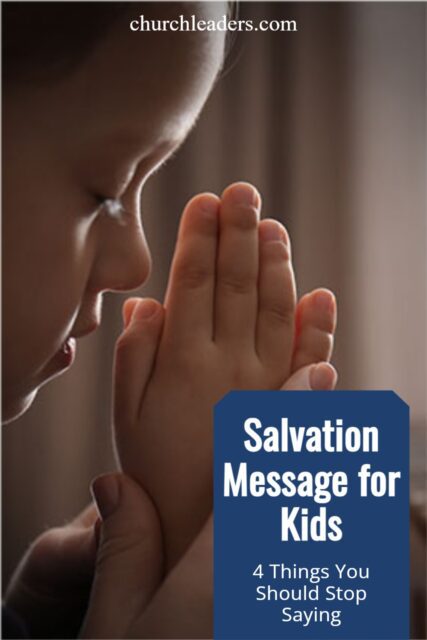3. “Once you believe in Jesus, you’ll feel different and happy all the time.”
This is similar to the above statement, but rather than the outcomes of my life changing, our outlook will change. And sure, maybe it will for a few days or months. But what happens when you don’t feel happy anymore? Kids may wonder if Jesus is longer active in their life or worse, if they’re still part of God’s family.
In a salvation message for kids, it’s dangerous to tie salvation to an emotional moment in time. When this happens, a child may find himself rededicating his life at closing session every Snow Camp and Summer Camp. People can manufacture emotions with the right environment or the right sermon. Emotions are a human reaction to what is happening in life. Sadness is real. Anger is real. Negative emotions will be part of life. Kids are going to grow up and not always feel happy or like everything is going to be okay.
Because something bad happened and they feel bad about it. They may have a chemical imbalance that twists their reality. At that point in their life, it’s not going to be “okay” as they define that word.
We must free kids to feel emotions apart from being dependent on their salvation. We can love God—trust Him even—and still feel the weight of the human experience. When we sweep those under the rug in favor of some false happiness we manufacture, we miss an opportunity to travel the shadow of death and feel the love of The Shepherd coming to find us and carry us home.
When you believe in Jesus, everything will feel different. Except when it doesn’t. And that’s okay. Those moments allow us to feel his love in tangible ways. When a salvation message for kids sets them up to think believing in Jesus makes everything happy and rainbows and magical unicorns, we’re laying a weak foundation. And it will crumble when something bad happens in life.
4. “Pray the Sinner’s Prayer.”
Don’t tie a salvation message for kids to a specific “sinner’s prayer.” There’s no “right prayer” for a kid (or anyone for that matter) to say. Kids will express their faith using words and ideas they know and understand at their age. Don’t get hung up on them having the “right words” but consider the heart with which the kids pray them.
In Romans 10:9, Paul says, “If you declare with your mouth, ‘Jesus is Lord’…” People often use this verse to prove that there is a prescribed way to receive salvation. Yet when you read through the rest of Paul’s Epistles as well as the salvation accounts throughout Acts, you can see that faith is a result of God’s movement in someone’s life. Declaring one’s faith is deeply personal and not a result of some magical prayer.
We don’t want kids think their salvation is tied to specific words they may or may not have said at some point in their life. As we get older, our memories fade. As we face crisis, our memories can get distorted. If we say there’s a specific sinner’s prayer they should say to begin a relationship with Jesus, later on in life they may doubt they said the necessary words for that relationship to stick.
Trust takes on many shapes and forms and words. People express that trust differently throughout their lives. In so many words, the Bible informs us we can come as we are. We must offer the same promise to kids in our ministries. Don’t let anything get in the way of a child coming to faith. Allow faith to take root in that child’s life and let them declare that faith as they feel moved.
PRO TIP: If you’re not sure of something, DON’T SAY IT!
Let’s be honest: At times kids ask questions that we’re just not sure how to answer. Yet instead of being honest with our own confusion, we piece together some ideas and end up making up an answer that sounds good and makes them happy. It’s not that the answer is wrong, but it’s muddled. This is actually more dangerous to faith than admitting our own confusion and saying, “I don’t know.”
“I don’t know” is a legitimate answer to questions your kids have about faith. Embrace the mystery of how God works and how the Holy Spirit enters our lives. Invite kids into that mystery rather than giving them an incomplete answer they may not understand. Plus, that partial answer may fall apart as they grow up and begin to have a better understanding of their decision.
Your Turn: What phrases would you add to this list? Let’s work together to present the salvation message for kids clearly, so they can know Jesus and grow closer to him.
This article originally appeared here.












